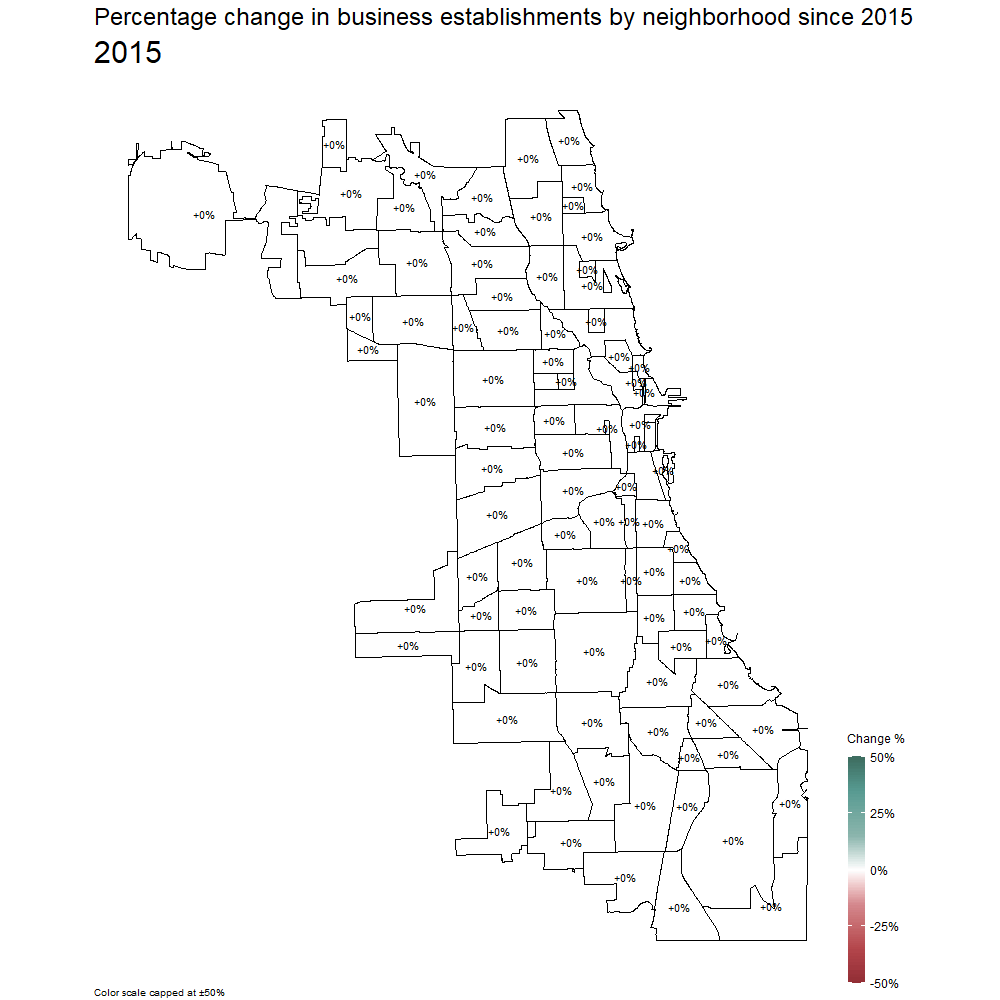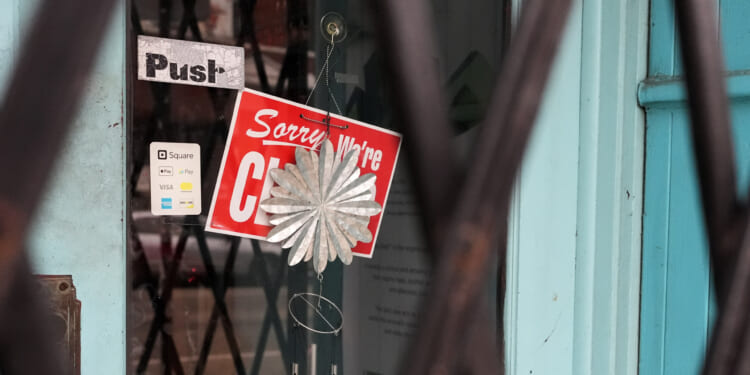Chicago lost nearly 1-in-5 businesses between 2015 and 2024, translating to nearly 11,200 fewer businesses operating in the city. Of the city’s 98 neighborhoods, 80 lost 10% or more of their businesses. Mag Mile lost 41% of its stores.
Chicago had fewer businesses operating in the city in 2024 than during any year in the past decade, thanks to 19% of its businesses disappearing since 2015.
The city was home to 48,779 active businesses in 2024, business license data shows. That’s the fewest during the past decade and 11,199 fewer than in 2015.
A breakdown of the change in business establishments by Chicago neighborhood shows this was a citywide trend, with 80 of the 98 neighborhoods reporting at least 10% fewer places of business in 2024 than in 2015.

Among those communities, 38 reported losing more than one-fifth of their storefronts. There were 16 that lost at least one-quarter. The worst-off neighborhood was the Magnificent Mile on the Near North Side: 41% of its storefronts disappeared in a decade.
Chicago was home to 48,779 businesses in 2024. If the 10-year historical trend holds, the city can expect to lose another 826 business this year.
Many businesses in Chicago pay the third-highest state corporate income tax rates in the nation. They also pay the highest commercial property taxes in the U.S.
That’s in addition to the seventh-highest combined state and local sales tax rate and one of the most punitive unemployment insurance tax structures in the nation – just because they operate in the city.
Chicago leaders need to make it easier for entrepreneurs and existing businesses to compete or risk these employers taking their jobs and tax dollars to more competitive locales. Illinois is one of the nation’s leaders in businesses moving to other states.
Big businesses such as Boeing, Caterpillar, TTX, Citadel and Tyson have already left Chicago, but many small businesses have just evaporated – a bad thing in a state where mom-and-pop shops create most of the new jobs.










